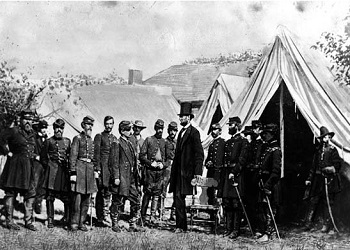
Setting the Stage for BattleĪfter Lee thwarted the plan of General George B. They’d remained on the sidelines so far, but as they endured cotton shortages and the south seemed to gain the upper hand, they considered legitimizing the Confederacy, a move with potentially drastic implications.ĮXPLORE CIVIL WAR BATTLEFIELDS WITH HISTORY TRAVEL™. In Europe, France and Great Britain anxiously watched America’s War Between the States. Lee also recognized dissent among Lincoln’s ranks and hoped a battle victory on Union land might topple Lincoln’s congressional support and help secure the Confederacy once and for all. Frustrated with Lincoln’s policies and the course of the war, Democrats launched an anti-war campaign, hoping to take over the U.S. To further complicate matters, Republicans faced midterm elections in November of 1862, and their victory wasn’t in the bag. Lincoln’s cabinet feared releasing the Emancipation Proclamation at that time would seem desperate and be difficult to enforce, so Lincoln decided to wait until another decisive Union victory.


By mid-summer 1862, President Abraham Lincoln had the Emancipation Proclamation-a document declaring freedom for all slaves in the so-called rebellious states-ready to go.īut after several unexpected and demoralizing Union losses, including Major General John Pope’s sound defeat at the Second Battle of Bull Run, it became clear the Confederacy wasn’t going to be easy to crush. There was a lot at stake for the Battle of Antietam.


 0 kommentar(er)
0 kommentar(er)
